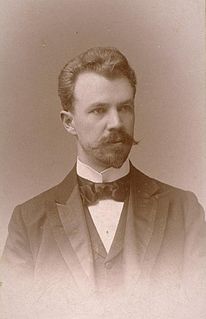A Quote by Thomas Carlyle
You can make even a parrot into a learned political economist - all he must learn are the two words "supply" and "demand."
Related Quotes
Mass production is only profitable if its rhythm can be maintained.. that is, if it can continue to sell its product in steady or increasing quantity. The result is that while, under the handicraft or small-unit system of production that was typical a century ago, demand created the supply, today supply must actively seek to create its corresponding demand.
In short, what the living wage is really about is not living standards, or even economics, but morality. Its advocates are basically opposed to the idea that wages are a market price-determined by supply and demand, the same as the price of apples or coal. And it is for that reason, rather than the practical details, that the broader political movement of which the demand for a living wage is the leading edge is ultimately doomed to failure: For the amorality of the market economy is part of its essence, and cannot be legislated away.
I've learned that whenever I decide something with an open heart, I usually make the right decision. I've learned that even when I have pains, I don't have to be one. I've learned that every day you should reach out and touch someone. People love a warm hug, or just a friendly pat on the back. I've learned that I still have a lot to learn.
If you can find a host for me that has a friendly parrot, I will be very very glad… DON'T buy a parrot figuring that it will be a fun surprise for me. To acquire a parrot is a major decision: it is likely to outlive you. If you don't know how to treat the parrot, it could be emotionally scarred and spend many decades feeling frightened and unhappy. If you buy a captured wild parrot, you will promote a cruel and devastating practice, and the parrot will be emotionally scarred before you get it. Meeting that sad animal is not an agreeable surprise.







































